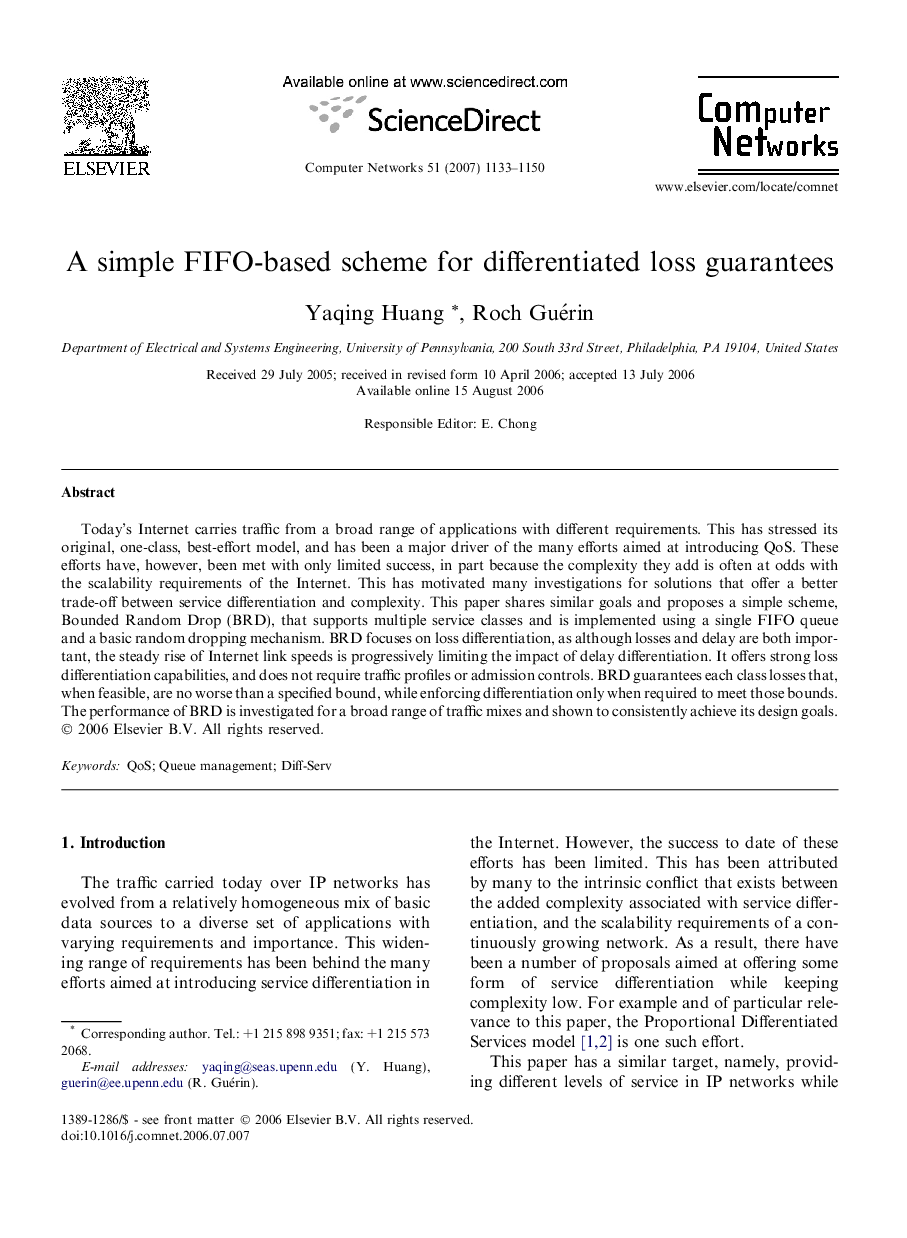| Article ID | Journal | Published Year | Pages | File Type |
|---|---|---|---|---|
| 451447 | Computer Networks | 2007 | 18 Pages |
Today’s Internet carries traffic from a broad range of applications with different requirements. This has stressed its original, one-class, best-effort model, and has been a major driver of the many efforts aimed at introducing QoS. These efforts have, however, been met with only limited success, in part because the complexity they add is often at odds with the scalability requirements of the Internet. This has motivated many investigations for solutions that offer a better trade-off between service differentiation and complexity. This paper shares similar goals and proposes a simple scheme, Bounded Random Drop (BRD), that supports multiple service classes and is implemented using a single FIFO queue and a basic random dropping mechanism. BRD focuses on loss differentiation, as although losses and delay are both important, the steady rise of Internet link speeds is progressively limiting the impact of delay differentiation. It offers strong loss differentiation capabilities, and does not require traffic profiles or admission controls. BRD guarantees each class losses that, when feasible, are no worse than a specified bound, while enforcing differentiation only when required to meet those bounds. The performance of BRD is investigated for a broad range of traffic mixes and shown to consistently achieve its design goals.
